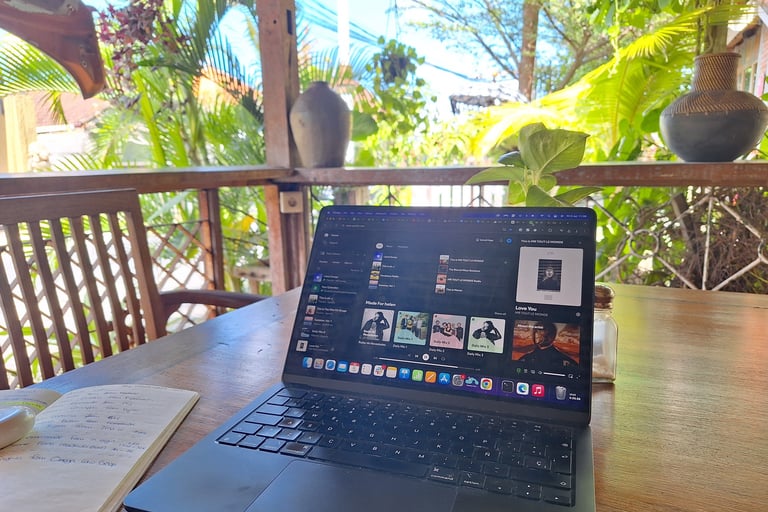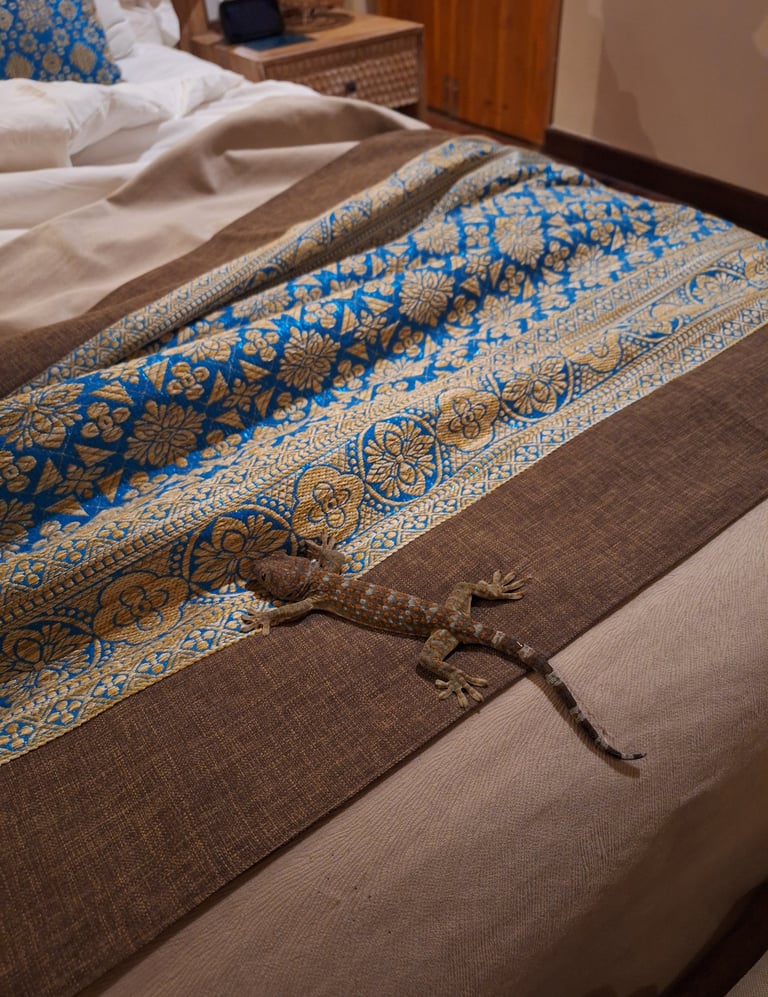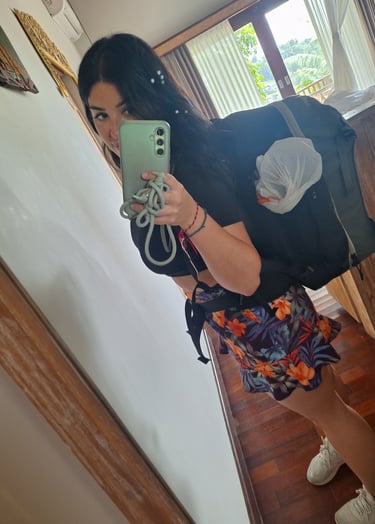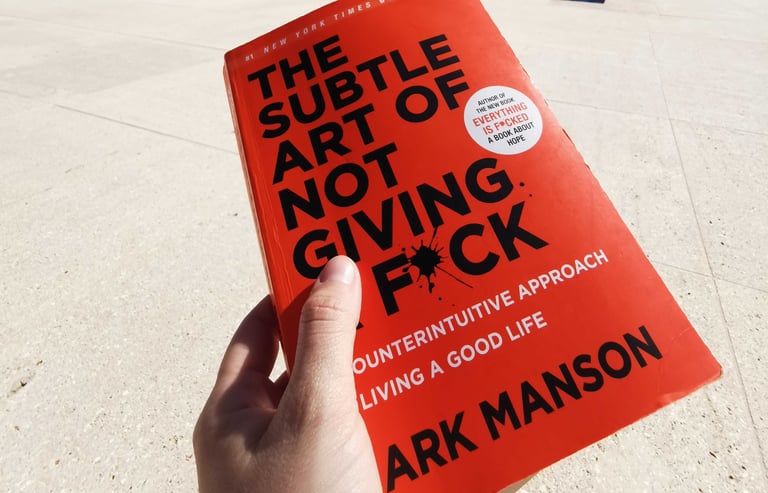My 11 honest learnings as a digital nomad
Working from paradise sounds like a dream, but the reality of being a digital nomad is a mix of incredible highs and challenging lows.
REMOTE WORK
Elena
7/6/20249 min read
Every time I mention that I work as a digital nomad, often spending long periods travelling far from home, I get the same “you’re so lucky!” reaction.
And the truth is, I am. I love this life, and it has enriched my soul in incredible ways. So far, I’ve worked from places like Mexico, Indonesia, Malaysia, Jordan, and the Philippines, discovering amazing places, getting to know the local culture, and embracing the art of slow travelling. It has allowed me to truly immerse myself in each destination, forming deep connections and understanding the rhythm of life in each unique place.
However, most people don’t see the price you pay for it—the ups and downs, the endless challenges, the constant loneliness.
If you’re considering working remotely full-time while travelling the world, here’s a list of all the learnings I’ve gathered from my adventures. Spoiler: some of them have been hard pills to swallow.


1. Spend money on things that make your life easier
This is my number one rule, and involves essentials like a) never sharing a dorm and b) paying for a reliable Wi-Fi connection.
Let’s be real: I'm not 20 years old anymore, AND I need to work five days a week, so I can't afford (nor am I interested in) bad sleep, thank you. Also, most of my dream destinations are far cheaper than any country in Europe, so if the choice is between paying €5 for a hostel bed or €15 for a hotel room, there's no contest. In fact, I'd rather not travel than have a sh**ty experience. And while some hostels are great and offer opportunities to work and meet fellow travellers… It's a complete gamble. You might end up surrounded by teenage spring breakers with absolute disregard for their livers, and then what? Your alarm is still going off at 7 AM.
The same goes for the internet. Working from a cute café can turn into a nightmare if the connection is slow, especially when you have a full day of meetings. Always have a couple of coworking spaces identified nearby that you can rely on for days when you need a heavy-duty internet connection.
2. Include exercise in your days
I’ve heard many people say, “if you work remotely, you MUST create a routine.” The reality is, I haven’t felt the need for a super strict schedule. Sure, some structure is nice, but I already do well with waking up early, going to bed before 10, and eating relatively healthy -ish. So I prefer to keep my days flexible, switching between working from home, coworking spaces, or even a day club.
However, one thing that has massively helped me stay sane—both physically and mentally—is exercise, and I highly recommend it. I’m not a big fan of traditional cardio gyms, so my exercise routine includes activities like Muay Thai or boxing classes (Asia is truly the best place to learn), surfing, weekend hikes, and yoga or Pilates. So, choose whatever feels good for you, as it will help you massively.
An added bonus is that you'll likely meet new people through these activities, which leads me to my next point...
3. Find your tribe of fellow nomads
Working remotely can be very lonely. If you’re a social bee, this can be one of your main struggles. Even though I enjoy my own company immensely, isolation can still take a toll.
To combat this, actively seek out ways to interact with other travellers or expats. I’ve met people with incredible stories: touring the world, filming documentaries, taking gap years, searching for artistic inspiration, healing from love wounds—the list goes on.
Building a network of fellow nomads will enrich your travel experience, provide a sense of community, and help you share and learn from others on similar journeys.
But also…
4. Engage with locals
One of the biggest mistakes I’ve seen is people that never engaged with the locals other than to buy a souvenir. Sometimes out of fear, due to language barriers, or a misguided sense of superiority.
By surrounding yourself only with other Westerners -or even worse, only people from your country- you miss out on a huge part of the experience. Engaging with locals allows you to learn more about the culture, traditions, and daily life in a way that no guidebook can offer. You get to hear stories, share meals, and see the world from a different perspective.
In my travels, I’ve found that locals are usually very kind and eager to exchange experiences. They appreciate your interest in their culture and are often excited to show you hidden gems, teach you their language, partying with you, or inviting you to their kid’s birthday (been there, done that).
So, don’t hesitate to strike up a conversation with the shop owner, join a local cooking class, or attend a neighbourhood ceremony. These interactions will not only make your travel experience more meaningful but also help you leave a positive impact wherever you go


5. Get ready to coexist with the wilderness
While some people take remote jobs to work from a chic Parisian attic, I do it to see the orangutans in Kalimantan. This means that even when staying in quality hotels or houses, I've had to deal with geckos falling into my bed in the middle of the night, spiders nesting in my shoes, and cockroaches saying hello when having a shower.
I've tried to accept these encounters with as much grace as possible, but it’s always a surprise to see ants in your coffee. The key is to inhale, exhale, and move on. Living in closer proximity to nature is part of the adventure, and it teaches you resilience and adaptability.
7. Always travel light!
Says the girl with the 20kg backpack. But seriously, one of my most important learnings is to never bring checked luggage. Like, never ever, even if you're out for months.
First of all, I'm not going to a fashion show. Second, most of the time, I travel to warm countries. And third, if I ever need something I haven't brought, it's easy and cheap to buy it locally. That's why my rubber sandals are from Thailand, and my rain poncho is from Bali.
I'm already used to wearing the same clothes on repeat, as I spend a significant part of the year between my family home in Madrid, my own place by the beach, and constant short trips. I've mastered the art of minimalistic outfits, and that's all I need. Checking luggage will only increase your cortisol at the airport and be a real pain when travelling from one place to another.


Throwback to when I almost had a heart attack
6. Give yourself time to do NOTHING
I learned this one the hard way. See, for me it’s incredibly difficult to do nothing, especially when I’m in a new country, buzzing with excitement. I want to jump from waterfalls, explore the jungle, and visit 453 temples.
But then I get sick. And exhausted. And I have to remind myself that I'm not a kid anymore.
Seriously, allocate some time for just staying in bed, scrolling through Instagram, or lounging on the beach getting a good tan. If you’re working, it’s perfectly fine to just watch some Netflix after you’re done and go to sleep, saving your energy for the weekend.
Downtime is crucial for maintaining your physical and mental health. Travelling constantly and working remotely can be incredibly taxing, so it’s important to listen to your body and give it the rest it needs. Don’t feel guilty about taking it easy; it’s essential for sustaining this lifestyle in the long run.
8. Prioritize efficiency
Focusing while you're in paradise can be challenging, but it's essential. One advantage for me is working in a different time zone from my colleagues, which means we only have a few overlapping hours. This forces me to keep meetings to a minimum and make the most of our shared time.
Luckily, I'm an early morning person, so I get most of the lengthy, complex tasks done in the first few hours without distractions, as the rest of my team is still asleep. I then spend the later part of the day planning, discussing, and helping others.
Another key strategy is to set a hard cut-off time. This makes me aware that I have to be super productive in the mornings and prevents procrastination. I've seen too many people have slow mornings and then stretch their workday until 9 or 10 PM. And that’s totally fine if it works for them, but I know my brain is at its peak between 9 AM and noon.
By prioritising efficiency and structuring your day around your peak productivity hours, you can maintain a healthy work-life balance even in the most distracting of environments -and then be off to a nice afterwork place!
9. Try activities that you can’t do at home
One of the joys of being a digital nomad is the opportunity to try activities you can't usually do. Yoga facing a rice field, working from a cat café, taking a silver workshop, diving with turtles —these experiences are what make your journey unique.
I'll admit it: sometimes I do it for the plot and a good story to share when I go back home. Like visiting an old shaman in Ubud or swimming with dolphins in the Amazon River at night (yes, I was scared out of my mind in that one). But the truth is, how many times in your life will you have the chance to try something so extraordinary?
So, be adventurous, step out of your comfort zone, and make the most of the incredible opportunities that come your way. I know my future nieces are going to love these stories.
10. Don’t miss out on practical things
I know, you’re dreaming about working for three months from a beach in Bali, and the last thing you want is to spend time worrying about the little things. But these seemingly minor details can make or break your experience.
Here’s a quick list of practical things to remember:
Carry multiple bank cards: Always travel with several bank cards. Not only do some banks have issues with international transactions (remember to notify your bank about your travel plans to avoid having your card blocked), but you can also get robbed or simply forget your card in an ATM (as someone I know aka me did in Tulum). I recommend opening an account with a bank that offers good services for travellers. I personally use Revolut, which doesn’t charge commissions, is super convenient, and has excellent features for travellers.
Get travel insurance: I used to be one of those reckless people saying, “What could possibly happen?” Well, life happens. I swear I'm not getting paid to say this (sadly, no affiliate links here), but my Revolut Metal Plan includes international travel insurance, which offers great value. Another excellent option for travellers is Iati Seguros. No matter which provider you choose, just make sure you have coverage. It’s a small investment for peace of mind and protection against unexpected events.
Monitor your visa and passport status: It’s relatively easy to travel for under a month to most places, but you will still need a passport valid for at least six months. Also, many Asian countries allow you to renew your one-month visa by simply re-entering the country—meaning a weekend in Singapore or Kuala Lumpur might be your best solution. Be careful with dates though, or you might end up like Tom Hanks in The Terminal. Has it happened to me? Let’s just say I was worried when I arrived in Lombok for my second entry to Indonesia 😅
Bring a power bank and a universal adapter: These items take up almost no space and can be lifesavers, especially if you’re exploring off the beaten track. You never know when you might need to charge your devices.
By taking care of these practicalities, you can focus on enjoying your adventure without unnecessary stress.
11. Use this time to get to know you better
There’s something incredibly powerful about spending so much time on your own, experiencing both the joys and challenges of being a nomad. It forces you to realise just how far you can go and how resilient you can be. Even though I look forward to my regular check-in calls with family and friends, in the end, you’re on your own, kid.
Personally, I like keeping a journal as a way to pour out my thoughts and do some self-therapy whenever I need it. Reading insightful books has also helped me see life from different perspectives (note to self: write an article about this topic 🤓). I've made an effort to integrate meditation into my routine, and I spend a lot of time reflecting on life and how to return home as a better person than when I left.


This book should be mandatory at some point in life
Leaving the familiar environment you’re used to and immersing yourself in new surroundings forces your mind to think differently and consider alternatives you might not have at home. Remember: this journey is as much about inner exploration as it is about outer adventures!